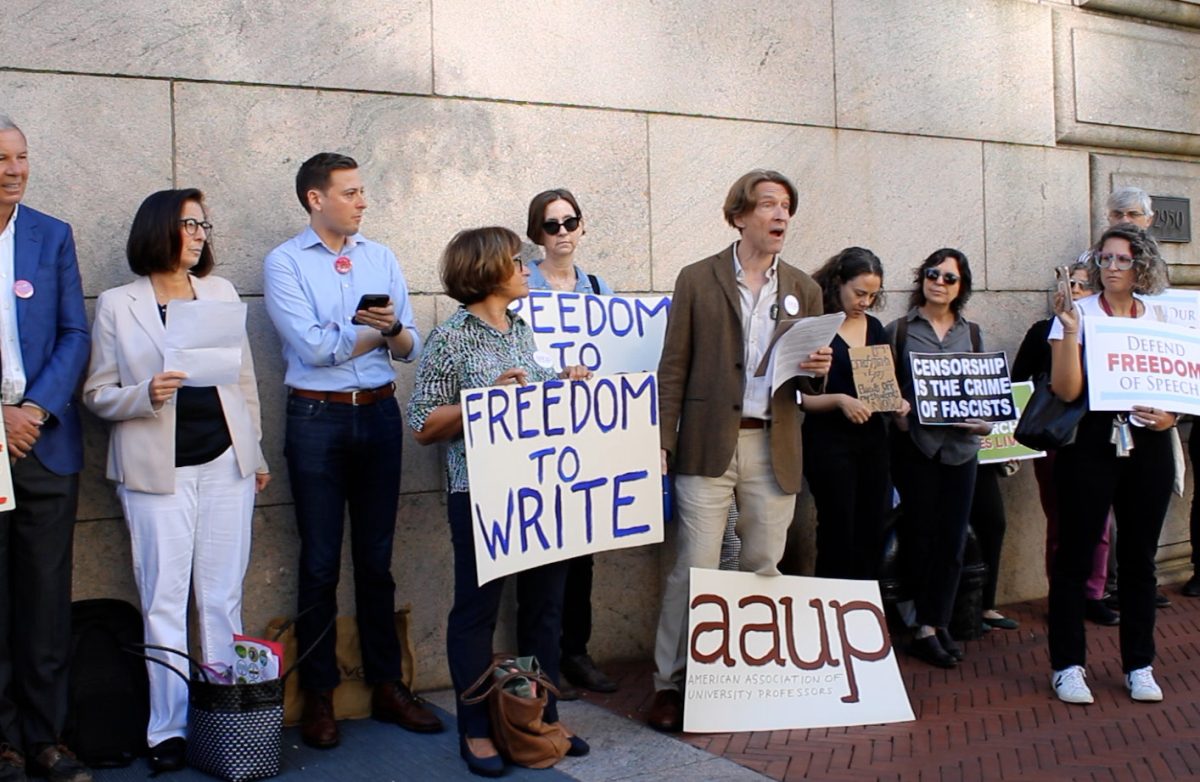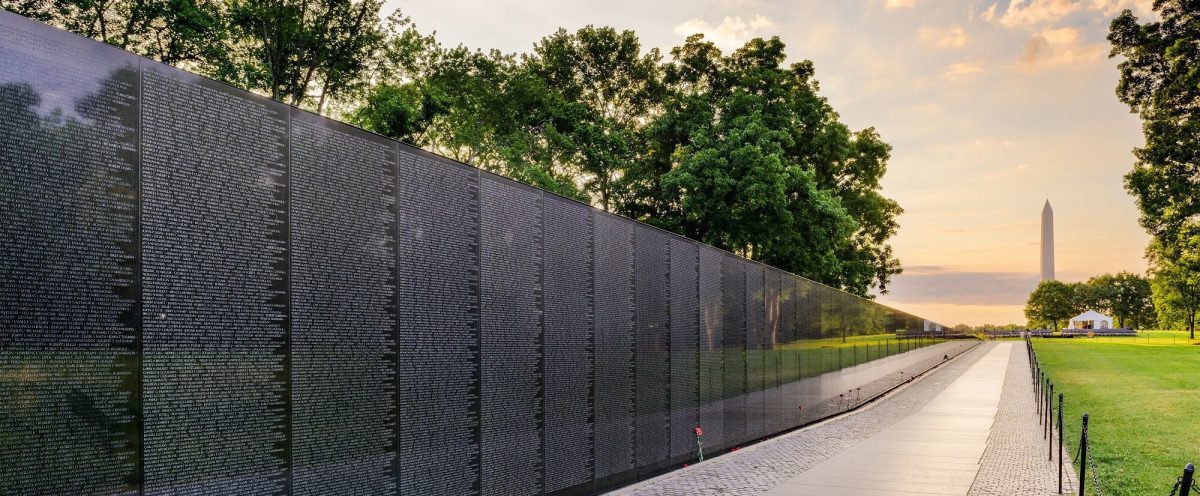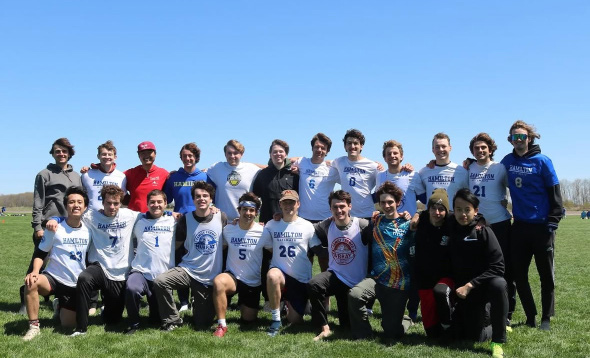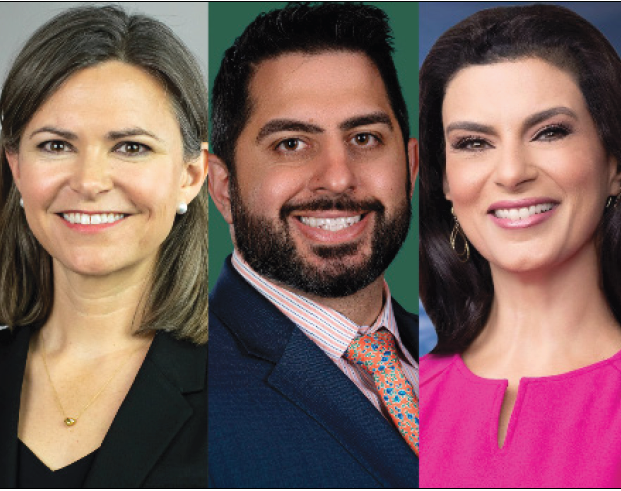
This article is from
The Spectator’s
long-form investigative team.
One of the only exclusively queer spaces on campus, the newly named Gender and Sexuality Union (GSU), has minimal attendance from the queer community and troubling history. As Alex Medina ’22, the current co-chair describes it, “they didn’t feel it was their job to make BIPOC feel welcome at the club.” Additionally, Medina feels that “the college should take more of an active role in supporting [LGBTQ] initiatives.” This results in students like Dylan Badillo ’23 feeling there is “not really any institutional support, and that’s not something that is really talked about”
The e-board members that created this unsafe space within the GSU have since graduated, leaving lasting effects on both individuals who were a part of the club and the name of the club itself. The reputation it gained was deserving but damaging to the future e-board members, who now have the task of rebranding and ensuring a promising future. At the beginning of the Fall 2020 semester, Badillo, the chair, was an “e-board of one.” Since then he has gotten more help and the e-board now consists of four new members. Both Badillo and Medina emphasized the struggles they are having with rebranding the club, and stated that one of their main goals is to, “…make people feel welcome, especially given that history.” The recent name change from Queer Student Union to Gender and Sexuality Union reflects these efforts and their hopes to move forward with a new and more inclusive rebranding.
The end of each GSU email includes a “Statement of our Past,” which states that, “The Gender and Sexuality Union (GSU), formerly known as the Queer Student Union (QSU), recognizes this organization’s previous discriminatory behaviors. We (GSU) acknowledge and are deeply sorry for the organization’s racist and bigoted past and the damage it has caused so many people during their time at Hamilton.”
Students at the GSU feel that the club’s past has caused a disconnect in the queer community and is part of the reason why many queer students do not attend GSU meetings. Badillo elaborated on this saying: “The queer community on campus isn’t that strongly knit because people are focused on their other identities and it feels like they have to choose… The Black and Latinx Student Union is very queer welcoming, so is the Feminists of Color Collective. Queer people of color tend to go to those groups because they focus on those identities and they are better equipped for intersectionality while the GSU is still making that improvement.”
Medina recognizes this and explains, “…we are in a place of trying to acknowledge that there is a disconnect between white queer culture and queer culture for BIPOC… it’s a historical thing. But it’s still an issue today and I still see it and it’s something we are trying to address with the different programming.”
Other queer students gave different reasons for not attending GSU, including the perceived “awkwardness” of meetings, as Brenne Hoven ’23 describes. This correlates with Julia Oakes’ ’23 experience who described the meetings as having “weird vibes,” being “extremely limited and small,” or just generally being irrelevant to them. Both Badillo and Medina recognize this dilemma, but acknowledge that the GSU has become a space for “…personal support for people who need it… GSU is very much a place where people are still trying to explore their sexuality or gender or find a group of people who are willing and open to talk about sexuality, especially for people still questioning.” Medina feels GSU is an important resource for helping “queer first-years transition to being on campus and find their groups and friends.”
Hoven further explains her sentiments stating that “There’s no other queer space and the fact is that the one thing we have is just awkward… It’s hard on this campus because they have such a large job- they are the one queer space. It shouldn’t be their responsibility to represent the queer student body. And it’s not like admin helps.” She added “A lot of times when admin tries to do things it just feels weird and forced. Like they are just doing it because they know someone is complaining.”
This perceived lack of support from the Administration is consistent with other student accounts, including Jason Le ’23, former Social Media Chair for the GSU. Le desires that “Hamilton would do more stuff like the coming-out door and the rainbow flags on the bridge as they did on coming out day in 2019, but it felt like a one-time thing. And it was really dry for the rest of that semester. I feel like our only resources were Paola [Lopez, Director of Days-Massolo Center], Dean Maria [Geneao-Homs, Associate Dean for Diversity and Inclusion] and the GSU.”
Medina also acknowledges the lack of support from the Administration, stating that, “There is that image of support… but throughout the year it is not really there. It’s more of a thing that students are doing for themselves and not really getting the support of the Administration. There are some folks in admin like Paola Lopez and Dean Maria who are super supportive, but generally, there is a sort of apathy from folks that are not in the community.”
This semester, the DMC hired Lexie Mucci, an LGBTQ+ non-clinical intercultural specialist, to support students. According to Mucci and Lopez, “Hamilton has created a position to provide the Hamilton student community with a staff member whose sole focus is to provide direct support services for LGBTQIA+ students and students exploring their identity in relation to sexuality, romantic attraction, and gender.” Medina agrees that this resource is helpful, however, he says: “The support specialist that we brought onto Hamilton came out of our budget… [with] some support from the DMC… We were only able to get them part-time because of the lack of funding. We are looking to make it a full-time position next year if we show that it is a useful enough resource. This shouldn’t have been something that students had to push for, those sorts of things should already be available on campus.”
This desire for support extends to other aspects of campus life including a striking lack of queer-focused classes available to Hamilton students. The Women and Gender Studies department occasionally offers an “LGBT Studies’’ course, but it is not always available or running. According to WebAdvisor, there are two 200-level Queer Literature classes, but neither is being offered this upcoming semester (Fall 2021). Even though many classes incorporate queer theory or representation occasionally, it is not the representation that queer people are hoping for. As Julia Oakes ’23 explained, “Sexuality has influenced our history and influences our lives today. Gay people didn’t all of a sudden just popup, we’ve been here. We are going to continue being here. It’s very glossed over in history, so I feel there should be more LGBTQ-centered classes here.” Dean Maria acknowledges the importance of representation in classes for queer people, “There’s something incredibly powerful if you’re gender nonconforming, nonbinary, trans, or otherwise to see someone else in roles of power.” Hoven felt similarly from her lived experiences, stating that, “As a queer woman, I feel that there is not much representation of older queer women who are together and successful, have a job and a life. I don’t have many examples of that in my life.”
Additionally, there are no queer-centered discussion groups run by the Administration to have an active open line of communication with queer students. Dean Maria states, “The GSU is a captive audience connected to the DMC so we can always engage with them, but I’m also interested to hear from those students who are not a part of the GSU.” She continued, saying “You don’t have to be a member of a current student group to come and have a conversation about what you need and what you want.” Dean Genao-Homs continues to ask herself “How do we celebrate the identities of members of the LGBTQ community, how do we also talk about the challenges of the members of the LGBTQ community?” Paola Lopez believes, however, that “it’s important for students to take ownership for their part in their Hamilton community.” Badillo took ownership as he states “in the past year if there has been a queer event on campus, I am the reason it happened. Even last year I was a first-year and started to do all this and take it on myself because I saw that there was nothing there, so I started doing things on my own.”
This perspective puts the responsibility on students to correct and educate their peers, which some say can lead to awkward interactions and “othering”. Hoven describes the idea of otherness as “awkward… it feels like I don’t fit into the space…I want to be able to say what I want, but I know it will make people think differently about me.”
Microaggressions are unfortunately still relatively common on campus and Dean Genao-Homs is “very confident that not everything gets reported.” Jason Le ’23 recalls when “random people would deadname or misgender me” during his freshman years. This is one issue that the administration is trying to address. Dean Maria explains the work being done about that. “We have pulled campus partners together to look at how the institution takes in names and connects to all the databases on campus, so that if a student changes their name anytime in their lifetime that every database takes that name change so students are being deadnamed or outed in the classroom or emails or on lists or anywhere. That takes a lot of people and engagement because there are hundreds of databases.” Students have reported that there are countless other microaggressive interactions, but more often than not these students just roll with the punches instead of initiating the confrontation.
When compared to similar colleges such as those in the NESCACs, Hamilton fairs worse regarding support for LGBTQ students. The comparison is made through The Campus Pride Index, a website that reviews LGBTQ friendliness for any college based on administrative reflection and student accounts. It takes into consideration different aspects, such as safety, housing, academics, and institutional policies. Hamilton currently has a rating of 3.5/5 stars. When compared to other NESCAC schools, Hamilton falls short in many areas that Amherst, Williams, and Tufts don’t. For reference, Amherst has 4/5, William’s has a rating of 4.5/5, and Tufts has 5/5. According to The Campus Pride Index, Hamilton fails to provide support for its students in LGBTQ academic life, support and institutional commitment and policy inclusion.
One way in which the Hamilton administration is trying to address LGBTQ issues is by making truly gender-neutral bathrooms across campus, as even Dean Genao-Homs acknowledges that “they aren’t really all gender.” However, initiatives to work on solutions for this problem have been paused due to COVID-19. Dean Genao-Homs also highly encourages students to reach out and have conversations with her. She wants to know “Where are the needs, and how do we begin addressing them?” She acknowledges that “I don’t hold these identities, but that doesn’t mean I can’t be part of the conversation… I can’t speak from lived experience, I can only create opportunities and reinforce support.”
In the meantime, Le still struggles with finding acceptance at Hamilton. “Sometimes I regret coming here, sometimes I don’t. There are some days I consider transferring. The queer culture and student union would have been better if I went elsewhere.”
find a spot: “in the past year, if there has been a queer event on campus, I am the reason it happened. Even last year I was a first-year and started to do all this and take it on myself because I saw that there was nothing there, so I started doing things on my own.”
















